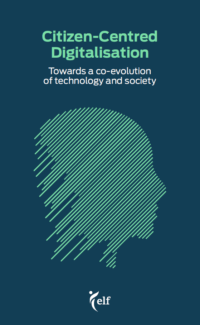Citizen-Centred Digitalisation
The future is here. Self-driving cars have made their way into the streets, there are robots that can help to do the dishes, and social media has fundamentally changed the way we socialise, mobilise and organise. At the same time, questions are being raised about the social and ethical implications of these developments. This book puts the citizens at the […]
